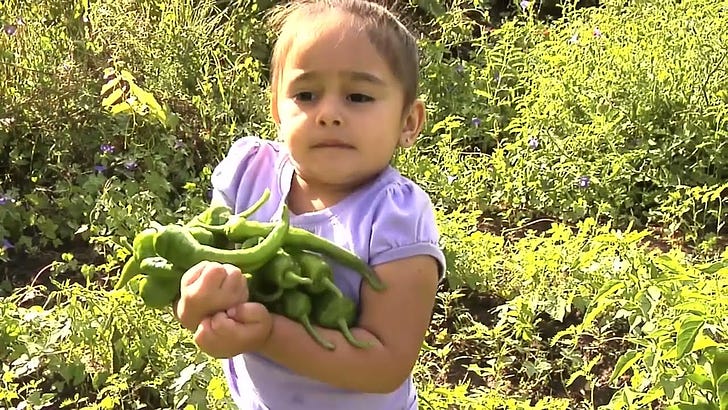Welcome to Postcards from New Mexico! Every Sunday, I share the beauty, history, and culture of this region that has been my home since 2008. I’m very open to your feedback and would like to hear what you’re interested in finding here. Please take a moment to fill out the Reader Survey or just leave a comment.
A little housekeeping….
Postcards of New Mexico now has an option for paid subscriptions (monthly and annual). Currently there isn’t a difference between free and paid, but know that if you upgrade to a paid subscription (or make a one-time gift), I will donate 10% of the net proceeds to Native-led nonprofit organizations in Northern New Mexico. A paid subscription (or one-time gift) is a great way to express your appreciation for this newsletter, as well as to support some nonprofits doing excellent work in this region!
This week’s postcard is a video!
Acequias are the lifeblood of Northern New Mexico. These irrigation ditches get their name from the Arabic word al-sāqiyah, reflecting the Moorish roots of many Hispano Nuevo Mexicanos. But contrary to what you may hear in some history accounts, this irrigation system did not start with the Spaniards who came to this area in the 1600s. The Pueblo people were creating complex irrigation canals to bring water from the rivers to their fields of corn, beans, squash, and other fruits and vegetables as early as the 1400s. This shared lineage of history reflects the multiverse that is Northern New Mexico.
Acequias are a time-honored system that are still very much in use today. Walk or drive through any village in Northern New Mexico that is relatively near a river (the Rio Chama and Rio Grande are the biggest), and you’ll see these ditches running through and connecting with farms and fields.
The wonderful thing about acequias is how they are stewarded by communities and how they are a great example of democracy in action. The people who live along each acequia (called parciantes, if they have water rights with their property) elect a mayordomo, the person who is the lead caretaker for that particular waterway. Parciantes pay a cuota (membership fee) to the acequia association to use the water.
Every year each acequia gets a thorough cleaning, usually in the late winter or early spring before waters are released through the system to irrigate the fields. Parciantes and others show up with their palas (shovels) and get to work! This is a joyful occasion and often ends with music and a big feast for all involved, young and old.
You can’t really understand the culture of Northern New Mexico without understanding acequias. We love our acequias and will fight fiercely to protect them. The New Mexico Acequia Association was founded for just this reason, and is the group behind the video above.
Wish you were here!
Thanks for reading Postcards from New Mexico! Sign up to receive a Postcard every Sunday:
If you’d like to make a one-time donation to support this newsletter (and its creator, Maia Duerr) as well as local Native-led nonprofit organizations, you may do so here:
And please visit my other newsletter: The Practice of Life




What an inspiring video! I often feel overwhelmed by my work and that is because I was raised in a culture/family of "rugged individualists." Here is proof that "many hands make light work."
Honestly, that sense of family and teamwork was one of the things that really struck me when I spent some time in New Mexico. Oh, and it never occurred to me to sharpen my shovel!
Great post, Maia, I really enjoyed it!
Maia, thanks so much for this. I'll be in Northern New Mexico in June. I like to look at places I visit through the lens of water. Thanks to you, I'll know to look for acequias. 🙏
The ancestors of the Hohokam in the Tucson area had a similar irrigation that alas went dry centuries ago.